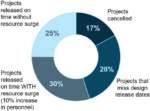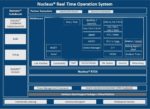You are currently viewing SemiWiki as a guest which gives you limited access to the site. To view blog comments and experience other SemiWiki features you must be a registered member. Registration is fast, simple, and absolutely free so please,
join our community today!
WP_Term Object
(
[term_id] => 159
[name] => Siemens EDA
[slug] => siemens-eda
[term_group] => 0
[term_taxonomy_id] => 159
[taxonomy] => category
[description] =>
[parent] => 157
[count] => 813
[filter] => raw
[cat_ID] => 159
[category_count] => 813
[category_description] =>
[cat_name] => Siemens EDA
[category_nicename] => siemens-eda
[category_parent] => 157
[is_post] =>
)

WP_Term Object
(
[term_id] => 159
[name] => Siemens EDA
[slug] => siemens-eda
[term_group] => 0
[term_taxonomy_id] => 159
[taxonomy] => category
[description] =>
[parent] => 157
[count] => 813
[filter] => raw
[cat_ID] => 159
[category_count] => 813
[category_description] =>
[cat_name] => Siemens EDA
[category_nicename] => siemens-eda
[category_parent] => 157
[is_post] =>
)
In case you missed it earlier this year, Mentor Graphics the oldest EDA brand officially changed its name to Siemens EDA and launched a new website under its parent Siemens Digital Industries Software.
Under Siemens Digital Industries Software, Siemens EDA adds IC, advanced IC packaging and PCB systems design, verification/validation… Read More
.The UVM standard was first released by Accellera 10 years ago this month and is now by far the leading methodology for functionally verifying logic designs, especially at the block level. As I write, DVCon fast approaches so I talked to Tom Fitzpatrick, Verification Technologist at Siemens EDA (Mentor Graphics) for a perspective.… Read More
Although electronic systems design as a discipline has been around ever since electronics systems came into existence (and that was many decades ago), the design complexities involved and the demands and constraints placed on the systems have multiplied significantly since then. Recent research by LifeCycle Insights shows… Read More
UPF was created to go beyond what HDL can do for managing on-chip power. HDLs are agnostic when it comes to dealing with supply & ground connections, power domains, level shifters, retention and other power management related elements of SoCs. UPF fills the breach allowing designers to specify in detail what parts of the design… Read More
GDS and LEF/DEF each came about to support data exchange in different types of design flows, custom layout and place & route respectively. GDS (or stream format) was first created in the late 1970s to support the first generation of custom IC layout tools, such as Calma’s GDSII system. Of course, the GDS format has been updated… Read More
When the number of clock domain crossings (CDCs) in SoCs proliferated it readily became apparent that traditional verification methods were not well suited to ensuring that they were properly handled in the design. This led to the creation of new methods and tools to check for correct interfaces between domains. Now, in automotive… Read More
There’s a lot to unpack in the title of this post. First, Siemens EDA is the new name for Mentor, a Siemens Business. The organization continues to operate as part of Siemens Digital Industries Software. The organization has released a white paper that describes research done with the American University of Armenia. The work examines… Read More
Clock domain crossing (CDC) analysis is unavoidable in any modern SoC design and is challenging enough to verify in its own right. CDC plus low power management adds more excitement to your verification task. I wrote on this topic for another solution provider last year. This time I want to intro an interesting twist on the problem,… Read More
A quick Q&A with Jeff Hancock, senior product manager for Mentor Embedded Platform Solutions, Siemens Digital Industries Software. Jeff oversees the Nucleus® real-time operating system (RTOS) and Mentor Embedded Hypervisor runtime product lines, as well as associated middleware and professional services. Over the… Read More
It hard to imagine design of a complex signal processing or computer vision application starting somewhere other than in MATLAB. Prove out the algorithm in MATLAB, then re-model in Simulink, to move closer to hardware. First probably an architectural model, using MATLAB library functions to prove out behavior of the larger system.… Read More










